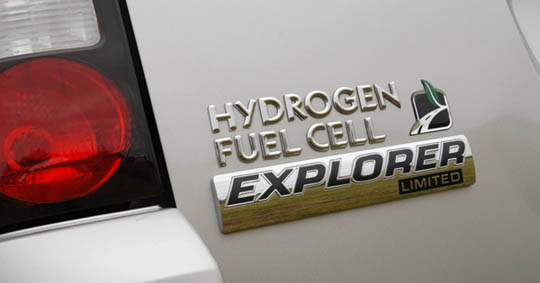



Fuel cells are electrochemical devices that produce electricity and heat from a fuel (often hydrogen) and oxygen. Unlike conventional engines, they do this without burning the fuel and are therefore more efficient, cleaner and carbon neutral. Fuel cells are being developed as a way to both produce and "store" energy in conjunction with renewable energy sources like solar and wind.
Most fuel cells are fueled with hydrogen. Hydrogen can be chemically generated or “reformed” from a range of standard fuels, such as natural gas, gasoline, or methanol. There is no agreement as to the single best fuel.
There are several different kinds of fuel cells. They are known by the electrolyte they contain. The most familiar types are alkaline, molten carbonate, phosphoric acid, proton exchange membrane and solid oxide.

Fuel cells have a number of advantages over other methods of generating power. The main advantage is that fuel cells emit no pollution when used. They also have the potential of using less fuel than competing technologies. Fuel cells are very quiet when operating and they create superior quality electricity.
There are many uses for fuel cells -- currently all of the major carmakers are attempting to commercialize a fuel cell car. Fuel cells are powering buses, boats, trains, planes, scooters, even bicycles. Miniature fuel cells for cellular phones, laptop computers and portable electronics are on their way to market.
In principle, a fuel cell operates like a battery. A battery chemically stores and releases electricity -- a fuel cell produces energy by reacting a fuel with air. A battery will run out of power and have to be recharged or disposed of. A fuel cell will produce energy in the form of electricity and heat as long as fuel is supplied to it.
Hydrogen is the simplest element and most plentiful gas in the universe. It is colorless, odorless and tasteless. Hydrogen is never found alone on earth -- it is always combined with other elements such as oxygen and carbon. Hydrogen can be removed from nearly any hydrogen compound and is the ultimate clean energy carrier. It is safe to produce and its chemical energy can be used in pollution-free ways.
A fuel cell running on pure hydrogen is a zero-emission power source. Fuel cell power plants are so low in emissions that some areas of the United States have exempted them from air permit requirements. Fuel cells are also very quiet, which reduces noise pollution.
Because of its high energy content, hydrogen must be handled correctly, just as gasoline and natural gas require careful management. Hydrogen is no more hazardous than other fuels.
877-331-1235 | © Copyright DASolar.com.